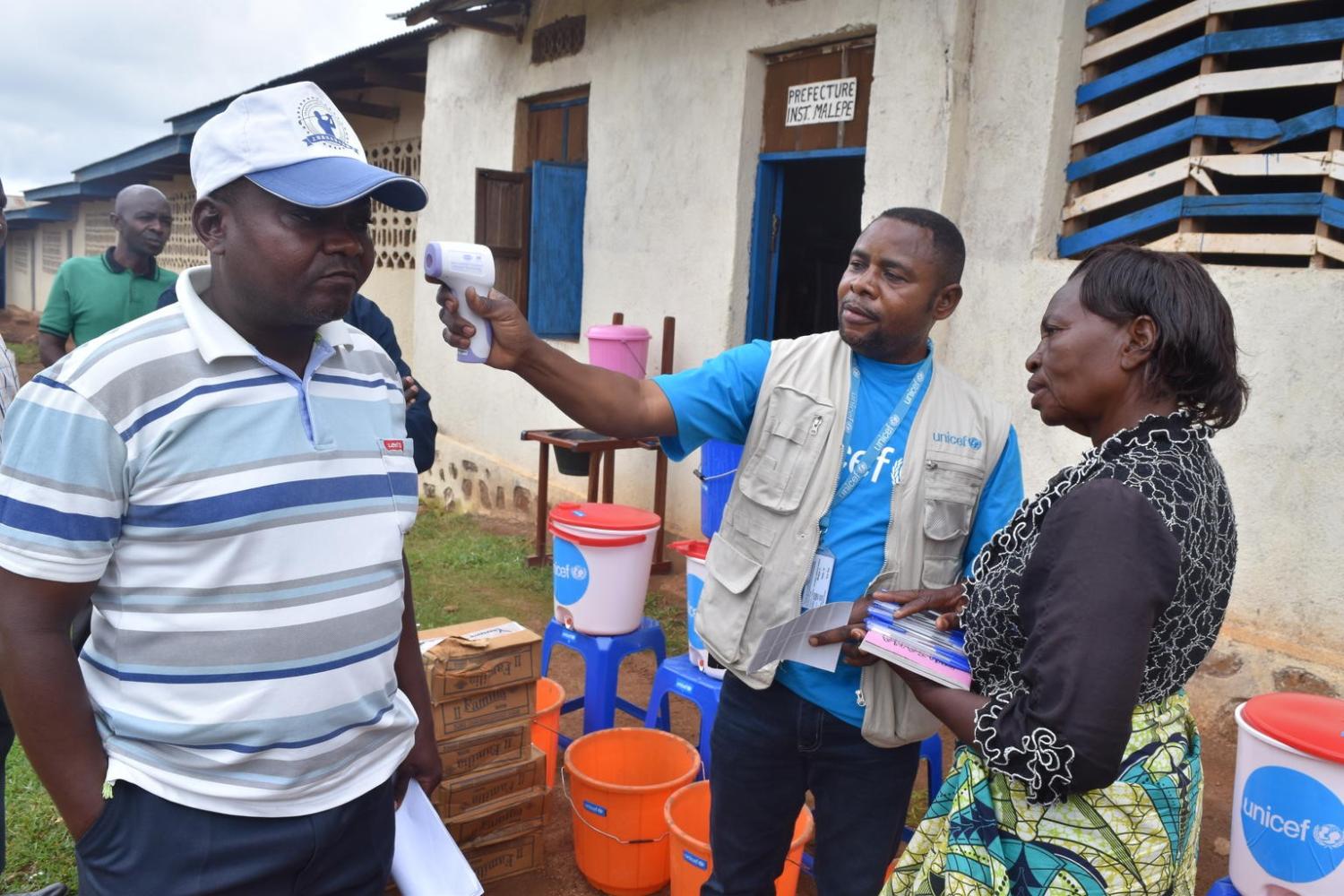Over the weekend and through today, the Democratic Republic of the Congo's (DRC's) health ministry reported 22 more cases, many from the current hot spot Katwa, but seven other areas also reported new cases.
In other developments, a group of experts today urged the World Health Organization's (WHO's) emergency committee to meet again to consider declaring a public health emergency, and clinical experts pushed for more use of renal replacement therapy to prevent kidney failure in critically ill Ebola patients.
Latest case details
Of the 22 new cases, the health ministry announced 11 of them in its update today. Among those lab-confirmed cases, 10 are in Katwa, with the following areas also reporting cases: Kyondo (4), Butembo (2), Kalunguta (2), Mabalako (1), Mangurujipa (1), Mutwanga (1), and Vuhovi (1). The increase lifts the outbreak's overall total to 785 cases, 731 of them confirmed and 54 listed as probable.
Health officials are still investigating 165 suspected Ebola infections.
In its latest updates the health ministry said 13 more people have died from their infections, 7 in community settings and 6 in Ebola treatment centers. Locations for community deaths, a factor that increases the risk of virus transmission, include Mangurujipa, Mutwanga, Mabalako, Kyondo, Katwa, and Vuhovi.
In a promising development, the ministry said contacts identified in Komanda have completed their 21-day follow-up period. And the number of people immunized with the experimental VSV-EBOV vaccine has risen to 73,309, roughly half of them in Beni and Katwa.
Experts call for global alert
Writing in a Lancet commentary today, several global health experts called for the WHO to reconvene its Ebola emergency committee and consider declaring a public health emergency of international concern (PHEIC) to address the threat of cross-border spread and to trigger more high-level support for the response. Several of the international experts are from Georgetown University's O'Neill Institute for National and Global Health Law and Johns Hopkins' Center for Health Security.
The emergency committee last met in October 2018, and its members said they didn't consider the event at that time to be a PHEIC. WHO emergency committees typically meet every 3 months or sooner, if needed.
The authors of the commentary said cases have more than tripled since then, with illnesses detected in 18 health zones and less than 20% of cases coming from known contact lists. They also said a widening outbreak could destabilize the region, especially in South Sudan, where tenuous peace is haunted by continued violence and predicted famine.
Declaring a PHEIC could specify proactive measures that are needed to shore up the response and send a clear signal that UN leadership and high-level political, financial, and technical support are urgently needed.
The expert commenters acknowledged that a PHEIC might escalate conflict by raising the international response's profile. "Like any complex multilateral negotiation, cultural competence and smart diplomacy are required. Outsiders are unlikely to be privy to all on-the-ground realities and risks," the team wrote, adding that problems—if they happen—would require urgent reform of the process.
"WHO has shown leadership and operational endurance, working tirelessly to combat the DRC Ebola epidemic. But WHO and partners cannot succeed alone," they wrote, noting that the WHO and United Nations will likely increasingly be called on to response to complex humanitarian crises.
Supportive care, reporting delays
In other medical literature developments:
- Experts from Canada and Africa writing in The Lancet today pushed for higher standards for supportive care for patients in Africa's outbreaks. Pointing out the role of renal failure in critically ill patients whose conditions deteriorate, they said that, although conventional dialysis isn't always feasible in many field settings, renal replacement therapy is an option when sterile water is scarce. They wrote that the bags are sealed until use, the approach is feasible, and the treatment would give patients time to recover from Ebola and associated acute renal failure.
- Georgia State University scientists who analyzed reporting dates in the DRC's current outbreak in the journal Epidemics yesterday described a two-wave pattern early in the outbreak, with the one surge in the first half of August and the other in late September, likely linked to local armed conflict. They said reporting delays have shown an 81.1% decline and that the epidemic appears to have reached a steady state, averaging about 35 cases a week during the 8 weeks preceding Jan 15.
See also:
Feb 2 DRC update
Feb 3 DRC update
Feb 4 DRC update
Feb 4 Lancet commentary on public health emergency declaration
Oct 17, 2018, CIDRAP news story "WHO: DRC Ebola outbreak not international health emergency"
Feb 4 Lancet commentary on supportive care
Feb 3 Epidemics abstract

















